8 Ways Hospitals Stay Safe and Clean
Keeping hospitals safe and clean for patients, visitors and staff, is of the highest importance. Here are the top ways hospitals stay infection-free.
Hospital patients are often medically and physically vulnerable, so it is especially important their environment is kept spotlessly clean and infection-free.
Why Thorough Hospital Cleaning is so Important
Without scrupulous hygiene and cleaning, bacteria and viruses can quickly spread. Those with a weakened immune system are particularly susceptible to cross-infections and healthcare acquired infections. With the emergence of antibiotic-resistant ‘superbugs’, such as MRSA and C-difficile, maintaining the highest hygiene and training standards is non-negotiable for anyone who spends time in hospitals.
As well as potentially serious impacts for those in hospital, such infections have a high cost for the NHS. In England alone, in 2016/17, the cost to the NHS of dealing with healthcare acquired infections was more than £2.1 billion. It is no surprise then that keeping hospitals clean, and preventing and controlling healthcare acquired infections, is a top priority.
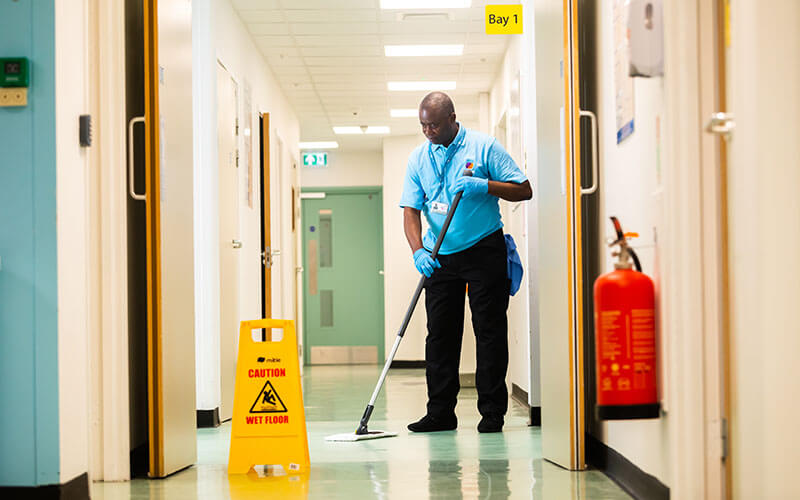
8 Ways to Maintain a Hygienic Hospital
As you would expect, hospitals have teams of dedicated cleaners to keep things spotlessly clean and they are trained to the highest standards in minimising cross infection.
It takes the same amount of time to clean an office space, or other facility, as it does to clean a similar area in a hospital, and the technique is the same. However, the key difference is that, to avoid cross infections, hospitals need to be cleaned more often and checked more frequently than any other buildings.
Here are eight of the most effective ways that hospital cleaning teams make sure they keep areas safe and hygienic for patients, staff and visitors alike.
1. Making hand washing an absolute priority
Given the number of patients treated, and equipment handled, on a daily basis in hospitals, the simplest, and possibly the best, weapon against cross-contamination is regular and thorough hand washing. Regular staff training, signage reminding staff and visitors to sanitise their hands, and easily accessible sanitiser dispensers, will reduce the risks.
2. Colour coding cleaning
Cleaning equipment should be colour coded for different tasks, and used in particular areas, to avoid the dangers of cross-contaminating other areas and surfaces. For example, red cloths and mops used in washrooms should not be used in general areas (colour coded blue), while green mops used in kitchens and catering areas should not be used to clean up areas of infection (colour coded yellow).
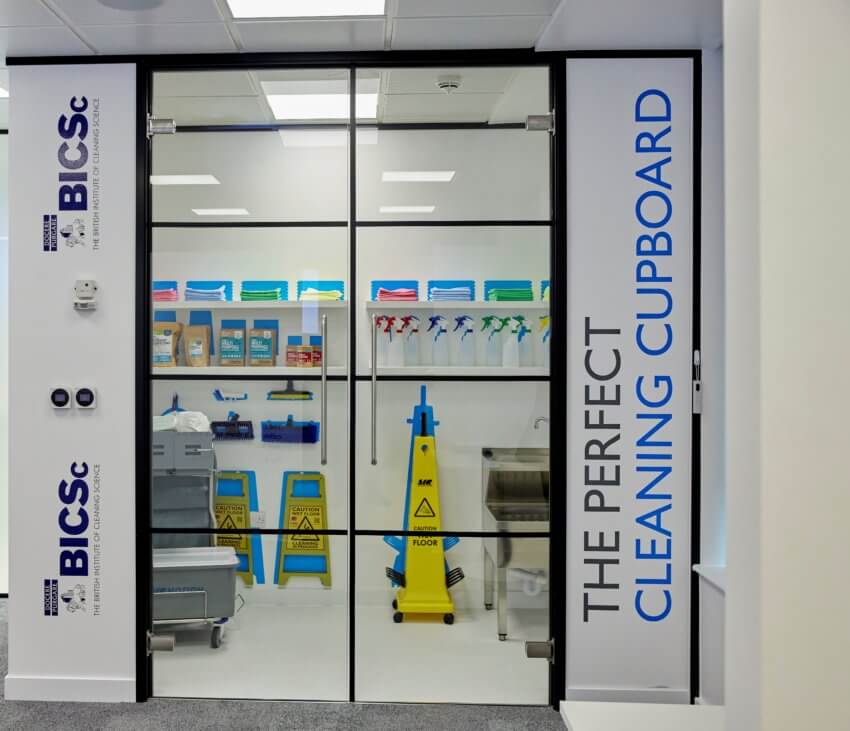
3. Segregate cleaning equipment
Similarly, to avoid cross infection, cleaning equipment, such as scrubber driers and vacuum cleaners, must be kept to use in dedicated areas, such as a ward or theatre, rather than moved around.
4. Regular and in-depth training
Make sure staff are well-trained in infection control and minimising cross contamination. Training should be refreshed regularly and in-depth to meet the requirements of the National Standards of Healthcare Cleanliness 2021 and the British Institute of Cleaning Science (BICS).
Mitie’s Cleaning and Hygiene Centre of Excellence is dedicated to bringing the science of cleaning to life and it is where we provide market leading training for our cleaning colleagues. Visitors to our Centre of Excellence can see, first hand, how we apply innovation and intelligence to deliver positive impacts for our healthcare clients.
5. Supervision and monitoring of cleaning
Well-trained cleaning staff are supported and motivated by BICS trained supervisors who monitor to make sure that hygiene standards are maintained. At Mitie, we use innovative technology, such as radio frequency ID (RFID) tags linked to handheld devices, to monitor when a space is cleaned and how long for. Not only does the system enhance monitoring, it also provides hospitals with much-needed assurance that the cleaning is carried out to the required standards. We have been trialling the system with a major healthcare client.
Our specialist cleaners helped an NHS client achieve NHS National Cleaning Specification scores of over 99% which put their site well above the UK national average for hospital cleanliness.
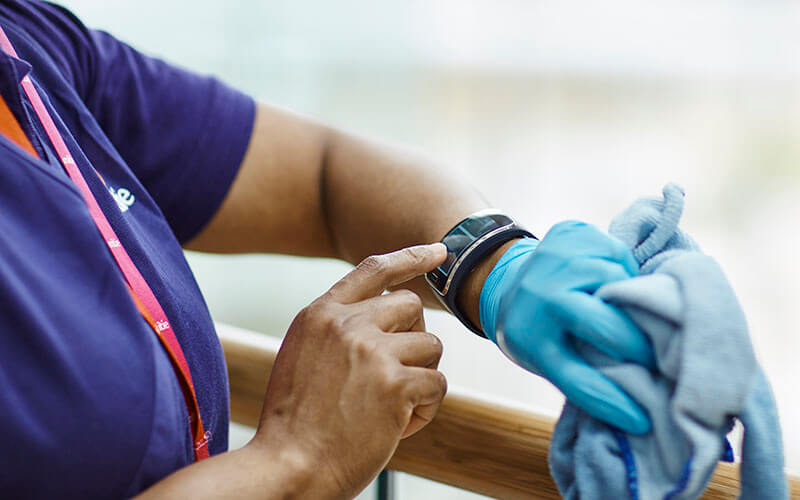
6. Quality auditing
Conducting cleaning audits involve more than a quick walk around to see if the area looks clean. The National Cleaning Standards dictate how, when and how frequently, audits are done, based on criteria such as functional risk categories or clinical area.
Mitie’s teams use electronic auditing systems to identify trends quickly and mitigate with additional training or different equipment where necessary.
7. Harness the power of technology and robotics
Modern technology is making an enormous difference to hospital hygiene practices. For example, sensors that monitor footfall, and call buttons that alert the closest teams to incidents, can make sure that cleaning is delivered quickly, based on demand and need, to support routine activity.
Robotic cleaners can tackle more routine tasks in communal spaces to give specialist cleaners more time to focus on areas, such as high touchpoints, that benefit more from the personal touch. Also, they can be a safer choice for hazardous cleaning tasks and can supplement out-of-hours cleaning routines.
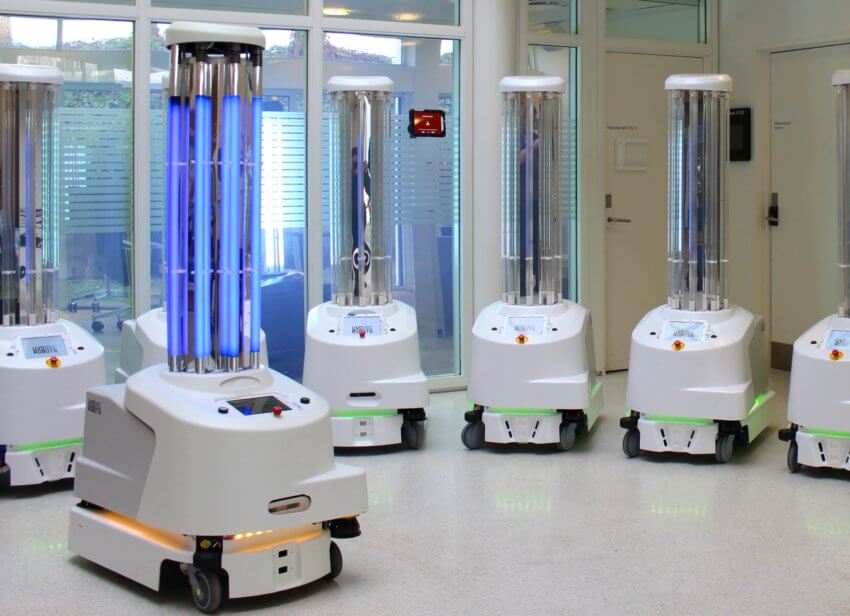
8. Keep up to date with the latest NHS guidance
The Department of Health, and the NHS, regularly issue new guidance and best practice information for healthcare cleaning companies and healthcare trusts. Mitie was one of a group of healthcare and facilities management specialists to contribute to the National Standards of Healthcare Cleanliness 2021. We work in partnership with our clients to support them in working with the latest Standards.
How can Mitie help keep your hospital safe and clean?
Mitie is one of the UK’s largest specialist providers of cleaning and hygiene services for the healthcare sector. Our award-winning teams work in partnership with more than 40 NHS trusts to keep the health and safety of patients at the heart of everything we do. When our cleaning teams work with your staff, we make sure that our services integrate seamlessly with yours. You can be confident that ‘our team is your team’ – available when you need it.
Our deep knowledge of workplace sanitation and specialist cleaning techniques, combined with our innovative use of technology, makes us an excellent choice for those looking for more than just a hospital cleaning service.
Enquire now to see how Mitie can support your hospital’s cleaning requirements.
Read next
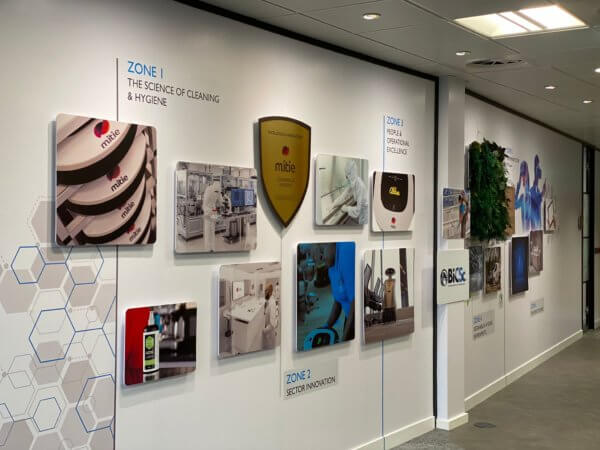
Mitie showcases latest innovation with the launch of its Cleaning and Hygiene Centre of Excellence
• Mitie has launched its new Cleaning and Hygiene Centre of Excellence, to showcase the latest innovation in cleaning science and technology• Made up of six Zones, the new Centre in Birmingham demonstrates best…
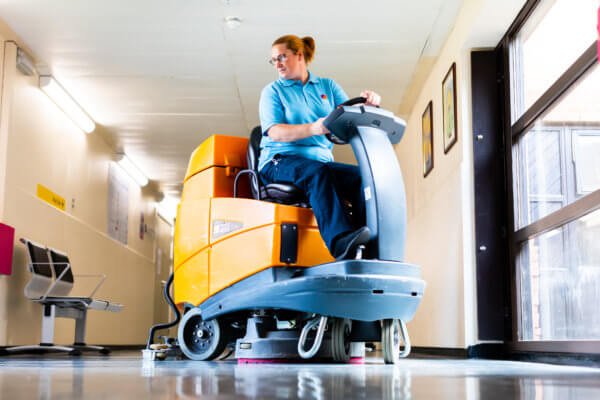
Answering the demand of the National Standards of Healthcare Cleanliness
Discover how we work in partnership with our customers implementing the National Standards of Healthcare Cleanliness in our thought leadership article by Martyn Hearn
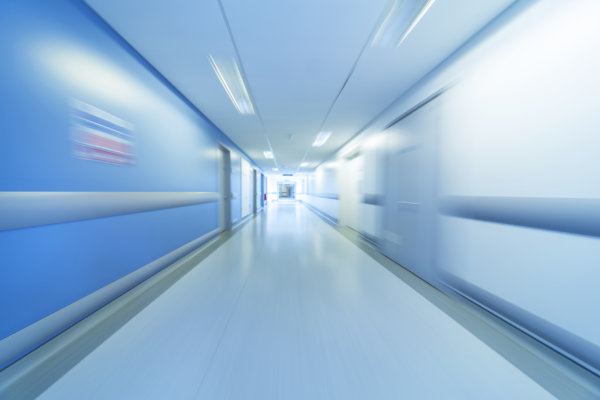
Mitie secures new £92.5m contract to support the John Radcliffe Hospital
Mitie has been awarded a new contract to provide cleaning, portering services, and catering for patients and staff at the John Radcliffe Hospital in Oxford.